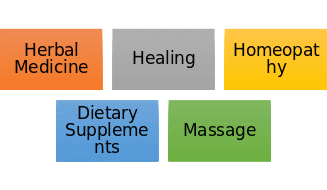Weight loss management and treatment begin with comprehensive lifestyle management. Lifestyle management emphasizes behavior modification, physical activity, and diet. It may include relapse prevention, goal setting, nonfood rewards, monitoring caloric consumption and exercise, and stimulus control (Kushner, 2018). Quick fixes such as fad diets and crash diets that promise easy weight loss may help in the short term, but losing weight and keeping it off require healthy eating habits. Additionally, increased exercise and physical activity are important parts of weight treatment. Behavior changes and modification programs also help in losing weight and keeping it off.
Childhood and adolescent obesity are currently at epidemic levels in the US. Approximately 17 percent of children present with obesity in the US, and it affects their cardiovascular and psychological health, among other health aspects. Between 2017 and 2018, the prevalence of the disease (obesity) among adolescents and children between the age of 2 -19 was 19.3%, and it affected nearly 14.4 million children and adolescents (Kushner, 2018). Diabetes treatment medicines such as sulfonylureas and thiazolidinediones may cause weight gain. Others include antipsychotic drugs such as risperidone, haloperidol, olanzapine, and clozapine. Foods that contribute to weight gain include processed foods high in salt, fat, calories, and added sugar.
Pharmacological therapy requires an interdisciplinary and individualized approach. A direct algorithm approach is ineffective due to the inherent etiologies and coexisting psychological and medical comorbidities. Treatment is generalized from treating other severe pain conditions to control management. There is limited data on pharmacological therapy, but the first step emphasizes the inherent pain mechanism: sympathetic, neuropathic, somatic, and visceral thus, it requires a multimodal strategy because the mentioned categories always overlap.
Muscle relaxants and nonsteroidal anti-inflammatory medications are effective for initial pharmacological therapy. Patients are advised to seek alternative treatment and medication for different illnesses, especially weight-related illnesses. Alternative medicine and treatment cover various practices and therapies (Kushner, 2018). However, the most common alternative therapies include herbal medicine, healing, homeopathy, and dietary supplements. On the other hand, complementary therapies include acupuncture, yoga, manual therapies, and massage.
Alternative Medication and Treatment

Reference
Kushner, R. F. (2018). Weight loss strategies for the treatment of obesity: Lifestyle management and pharmacotherapy. Progress in Cardiovascular Diseases, 61(2), 246-252.

